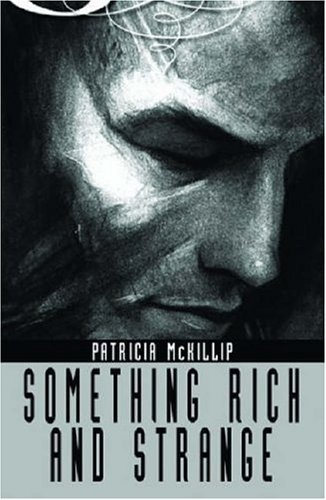 McKillip uses the sea in many of her books, but in Something Rich and Strange the sea is not only the setting and a metaphor for mystery and magic and change — the sea is the subject. The book begins with protagonists Megan and Jonah (how is that for an apropos name?) experiencing a sea change after a long winter during which their lives had settled into a routine dependent on the shore. But the sea brings ambiguity, too. Just as the sea has the power to transform the people and things near it, the characters slowly realize that humanity has the power to overwhelm the sea, defeat it and kill the life in it. Moreover, man is doing so.
McKillip uses the sea in many of her books, but in Something Rich and Strange the sea is not only the setting and a metaphor for mystery and magic and change — the sea is the subject. The book begins with protagonists Megan and Jonah (how is that for an apropos name?) experiencing a sea change after a long winter during which their lives had settled into a routine dependent on the shore. But the sea brings ambiguity, too. Just as the sea has the power to transform the people and things near it, the characters slowly realize that humanity has the power to overwhelm the sea, defeat it and kill the life in it. Moreover, man is doing so.
The book starts with Megan pulling things from a tide-pool. At first it looks like treasure, bright and glittering, but then the objects resolve into litter. She fills her pockets and later has a conversation with Jonah over whether picking up the litter is worthwhile. “You can’t sweep the sea,” he says. “Yes,” she replies, “but I can tidy a tide pool.” Something Rich and Strange is a deeply ecological book. There’s no ignoring the central message. The plot depends on it, as do the major images: Megan pulls impossible piles of trash from her pockets, Jonah scrambles through the junkyard at the bottom of the ocean amid mutated and wounded sea animals.
McKillip is excellent at such prose, and at times Something Rich and Strange is nearly a prose-poem. The writing is lyrical, the events mysterious, the metaphors shadowy and aquatic. The plot suffers from it, as it does from turning the ocean into a character. This is a diffuse mystery, and the reader has to trust the writer that a point will eventually emerge from the pages. McKillip is both good enough and well-known enough to entitle her to our trust, but even at its best, this novel is not a page-turner. Even more so than most of her books, the best way to enjoy Something Rich and Strange might be to read it aloud, enjoying the leisurely trip rather than racing to the destination.
This is an odd novel, and won’t be to everyone’s taste. It is, in itself, rich and not a little strange.
(If the title looks familiar but the publisher doesn’t, that’s because this is a trade paperback edition of a book first published by Bantam Spectra in 1994 as part of Brian Froud’s Faerielands series. It won the Mythopoeic Fantasy Award for Adult Literature for 1995 and has been difficult to find and expensive to buy until now.)
